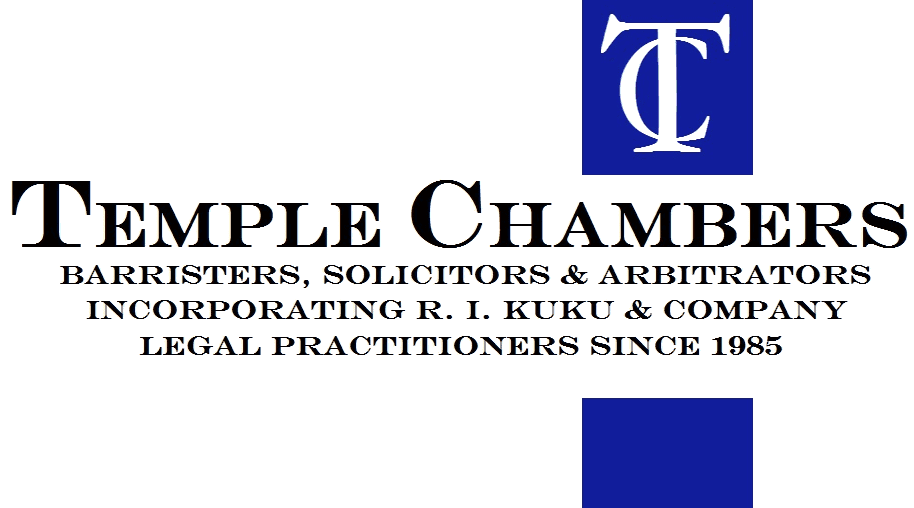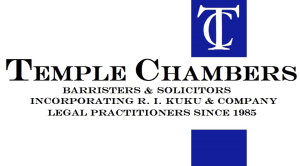- Obekpa House, 15 Mahatma Ghandi Street, Asokoro, Abuja
- (+234) 805 895 1790

- Home
- Our Firm
- Practice Area
- Advocacy
- Communications
- Corporate Law
- Government Relations & Regulatory Compliance
- Intellectual & Industrial Property
- lnsurance Law
- International Business Transactions (Joint Ventures & Mergers)
- International Correspondent Relationships
- Labour Law
- Litigation & Arbitration
- Oil & Gas Law
- Real Estate & Commercial Property
- Taxation
- Articles
- About Us
- Contact Us
Labour Law
Temple Chambers (Barristers & Solicitors)
Labour law is a critical area of legal practice that governs the relationship between employers and employees. It encompasses a broad range of issues, including employment rights, workplace conditions, discrimination, and collective bargaining. For law firms, expertise in labour law is essential for advising clients on compliance with regulations, managing disputes, and navigating complex legal frameworks. This document provides an in-depth exploration of key aspects of labour law, illustrated with real-world scenarios and examples.
Employment Contracts and At-Will Employment
Employment contracts form the foundation of the employer-employee relationship, outlining the terms and conditions of employment. These contracts can be explicit or implied and may include details such as job duties, compensation, benefits, and termination procedures.
In a typical scenario, consider a law firm representing a company in drafting employment contracts for its executives. The firm must ensure that the contracts clearly define key aspects such as salary, bonus structures, non-compete clauses, and termination conditions. For example, if an executive’s contract includes a non-compete clause preventing them from working for a competitor for one year after leaving the company, the firm must ensure that the clause is enforceable and complies with applicable employment laws.
At-will employment is a common framework in which either the employer or employee can terminate the employment relationship at any time, with or without cause, and without prior notice. However, even in at-will situations, certain legal protections and exceptions apply. For instance, if an employee claims wrongful termination based on discriminatory reasons or retaliation for whistleblowing, the law firm must assess whether the termination violated any relevant employment laws.
Workplace Discrimination and Harassment
Workplace discrimination and harassment are significant issues in labour law. Legislation prohibits discrimination based on race, colour, religion, sex, national origin, disability, and age. Harassment, including sexual harassment and hostile work environments, is also illegal.
Consider a scenario where a law firm represents an employee who alleges sexual harassment by a supervisor. The firm would investigate the claim, gathering evidence such as witness statements and any relevant communications. The firm must then advise the client on their legal rights and options, which may include filing a complaint with an appropriate regulatory body or pursuing a lawsuit against the employer.
Similarly, if a client claims they were denied a promotion due to their race or gender, the law firm would need to review the employer’s promotion practices, compare them with the client’s qualifications, and assess whether there is evidence of discriminatory intent. The firm would also guide the client through the process of filing a discrimination claim and represent them in negotiations or litigation.
Wage and Hour Laws
Wage and hour laws regulate employee compensation, including minimum wage, overtime pay, and working hours. These laws are designed to ensure fair compensation and protect workers from exploitation.
For example, if a law firm represents a group of employees who claim they were misclassified as exempt from overtime pay, the firm must evaluate whether the employees’ job duties and compensation meet the criteria for exemption under applicable legislation. If the misclassification is confirmed, the firm would assist the employees in recovering unpaid overtime wages and addressing any related legal issues.
In another scenario, suppose a client’s business is audited for compliance with minimum wage laws. The law firm would need to review the company’s payroll practices, ensure that employees are paid at least the minimum wage, and assist in resolving any discrepancies or violations identified during the audit.
Employee Benefits and Rights
Labour law also encompasses employee benefits and rights, including health insurance, retirement plans, and family leave. Key regulations govern these areas, ensuring fair treatment and protection for employees.
For instance, if an employee’s health insurance claim is denied, the law firm must review the employee’s benefits plan to determine whether the denial was justified. The firm would assist the employee in appealing the denial, ensuring that their rights under the benefits plan are protected.
Similarly, if a client is facing allegations of non-compliance with family leave regulations, the firm would need to investigate whether the employee’s leave request was handled appropriately and if the client’s policies align with the relevant legal requirements. This may involve reviewing leave records, communication with the employee, and ensuring that the employee’s job rights are preserved during and after the leave period.
Collective Bargaining and Union Issues
Collective bargaining involves negotiations between employers and labour unions regarding terms and conditions of employment. Legislation governs the collective bargaining process and protects employees’ rights to unionise and engage in collective activities.
In a real-world scenario, a law firm might represent a union during contract negotiations with an employer. The firm would assist in negotiating terms related to wages, benefits, working conditions, and dispute resolution mechanisms. If negotiations reach an impasse, the firm might help facilitate mediation or arbitration to resolve the dispute.
Conversely, if an employer is facing a unionisation effort and seeks legal guidance, the law firm must navigate the relevant provisions on fair labour practices, avoid actions that could be construed as interference, and prepare for potential union-related disputes or elections.
Employment Law Compliance and Risk Management
Ensuring compliance with employment laws and managing legal risks are essential aspects of labour law practice. Law firms play a crucial role in advising clients on best practices, developing policies, and conducting audits to prevent legal issues.
For example, a law firm may conduct an employment law audit for a client to assess compliance with relevant regulations. This audit would involve reviewing the company’s employment policies, payroll records, and employee files to identify potential risks and recommend corrective actions.
In another scenario, if a client is expanding its workforce and implementing new employment practices, the firm would advise on legal compliance, including drafting employee handbooks, training managers on legal requirements, and ensuring that new policies align with current laws and regulations.
Useful Links
Get In Touch
Don’t hesitate with your future!
Give Us A Call Today!
© Copyright 2024 - Temple Chambers (Barristers & Solicitors) - All Rights Reserved.

